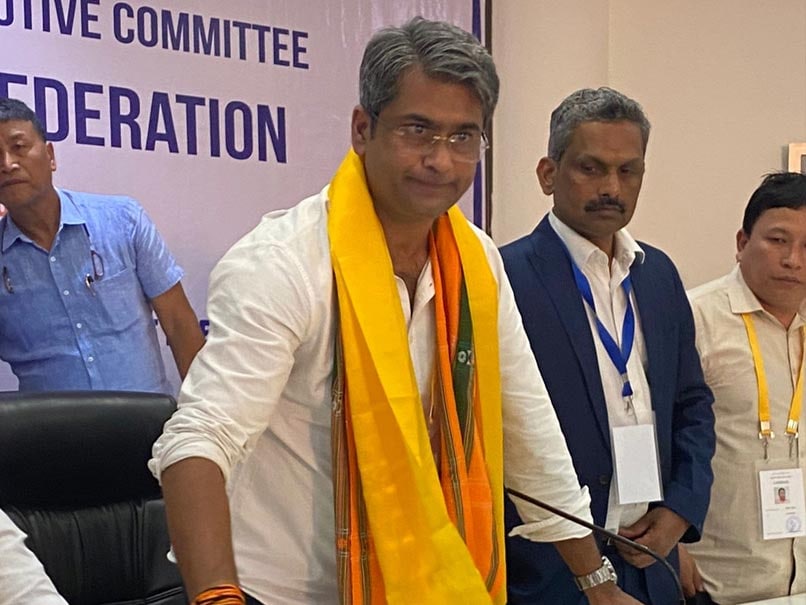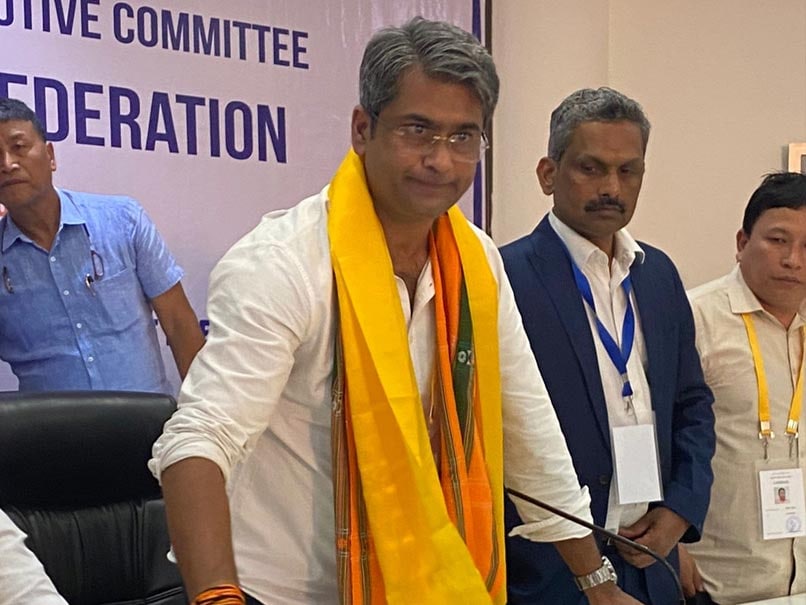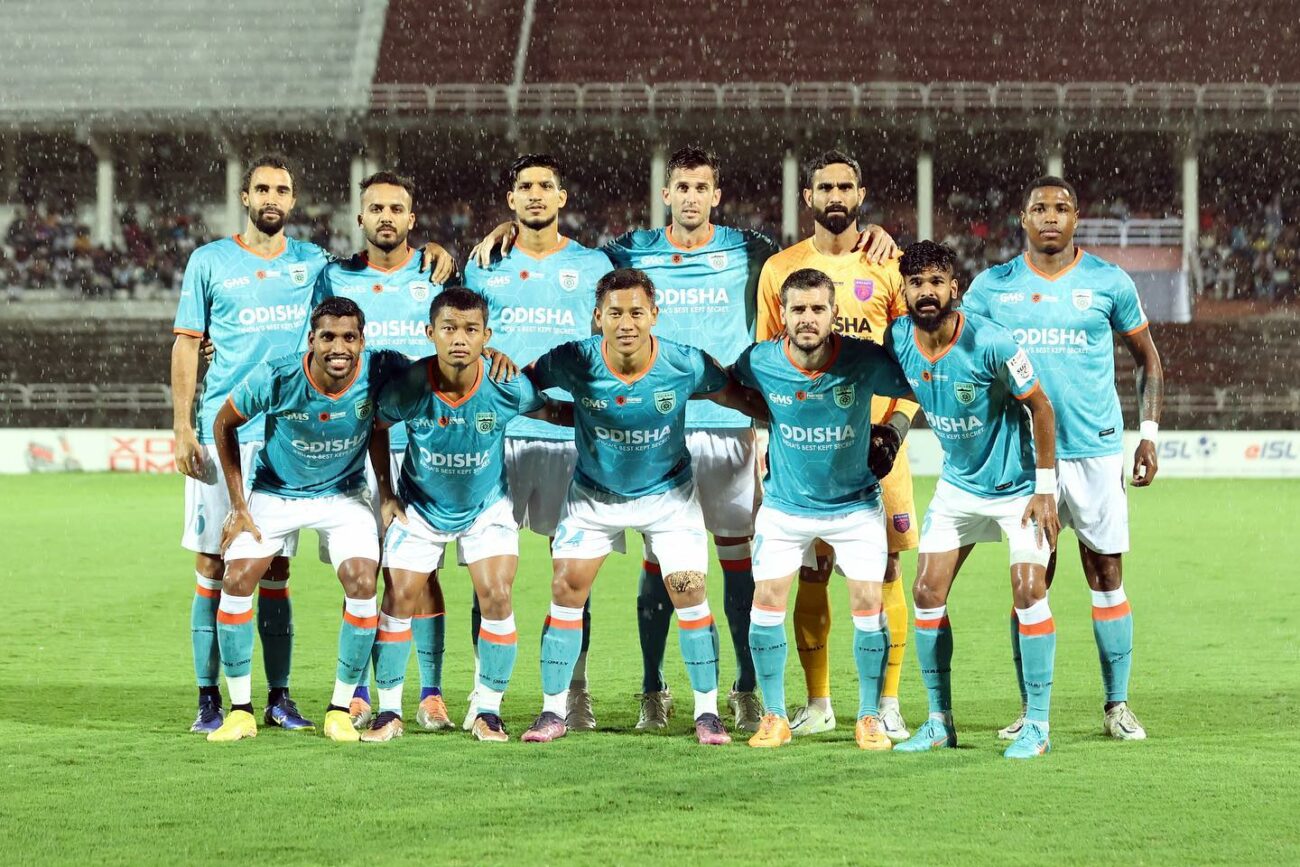The FIFA World Cup is one of the most prestigious events in the world of sports. It brings together nations from across the globe to compete in the game of football, and the event is watched by billions of fans worldwide. With the FIFA World Cup 2026 scheduled to take place in North America, there is a growing interest in India’s participation in the tournament.
Football fans in India are eagerly anticipating the possibility of their national team, the Blue Tigers, qualifying for the next World Cup hosted in North America. The tournament will be expanded to include 48 teams instead of the previous 32, which has piqued the interest of Indian fans even further. With the growth of the Indian Super League, the Indian football team has been showing signs of improvement in recent years, raising hopes for potential qualification. While it remains a slim chance, the idea of India competing at the World Cup is an exciting prospect for football enthusiasts across the country. This article will explore how India can be part of the FIFA World Cup 2026.

How India can be part of the FIFA World Cup 2026?
The recent expansion of the World Cup format to include 48 teams has resulted in a significant increase in the number of slots for Asian teams, with 8.5 spots up for grabs as compared to the previous 4.5. Given their current FIFA ranking of 19th amongst Asian nations, India would not be required to participate in the first round of the Asian qualification process and can begin their journey from Preliminary Round 2. This presents an exciting opportunity for the Indian football team to showcase their skills on a global stage and potentially secure a spot at the World Cup.
The Preliminary Round 2 of the Asian qualification process for the World Cup is set to begin in November 2023 and will feature 36 teams divided into 9 groups. The matches will take place over several months, with six matchdays scheduled until June 24, 2024. It is during this stage that the Indian football team will need to make significant strides and strive to finish in one of the top two spots in their group to progress to the next round of the qualifiers. It will be a challenging task, as they will be competing against other strong teams in their group, but with determination and hard work, India may be able to secure a spot in the next round.
While the opportunity for India to qualify for the World Cup is exciting, the task at hand remains daunting for the Blue Tigers. Currently ranked 106th in the world, India is a long way off from being among the top 8 nations in Asia. Even when India had achieved their best ranking of 94, they were still well outside of the continent’s top 10. Furthermore, India’s record against Asia’s top nations has been less than promising, which may pose a significant challenge in their bid for World Cup qualification. Nonetheless, the Indian football team needs to remain focused and committed to improving their game, as there is still a chance for them to make history and qualify for the World Cup.
The Indian football team’s recent record against Asia’s top teams has been mixed, with the best results being draws against teams like Oman, Syria, and China. However, the team has struggled against lower-ranked teams like the Maldives, Tajikistan, and North Korea.
Additionally, India has drawn against teams like Nepal, Bangladesh, and Afghanistan, which suggests that there is still much work to be done to qualify for the 2026 World Cup. Achieving this feat would require a tremendous amount of effort, focus, and improvement on the part of the Indian football team. While the task at hand may seem daunting, the team must remain optimistic and dedicated to their goal of qualifying for the World Cup. With the right approach and hard work, anything is possible.
Challenges team India will have in front of them:
India understands that qualifying for the FIFA World Cup is no easy feat, regardless of the teams they are grouped with the qualifiers. There are no restrictions on which AFC teams can face each other during the qualification process. This means that India may find themselves up against some of the strongest teams in Asia, making their path to qualification all the more challenging. However, this should not deter the Indian football team from pursuing their goal of making it to the World Cup. With a focused and determined approach, they can work towards improving their game and competing at the highest level.
Although there are different pots consisting of teams based on rankings, this does not necessarily mean that Asian nations cannot be grouped with their neighboring countries. India can be drawn against fellow South Asian Football Federation (SAFF) teams in the World Cup qualifiers. This could potentially make the road to qualification even more challenging for India, as they will be facing teams that are familiar with their playing style and tactics. Nonetheless, the Indian football team needs to remain focused and committed to improving their game, regardless of which teams they are drawn against. By continuing to work hard and persevere, they can increase their chances of making it to the 2026 FIFA World Cup.
India could potentially be paired against neighboring South Asian Football Federation (SAFF) teams like Bangladesh, Sri Lanka, and Nepal in the World Cup qualifiers. This is not a new scenario for the Indian football team, as they were grouped with Bangladesh in the 2022 World Cup qualifiers as well. However, regardless of the opponents they face, India must focus on improving their game and working towards their ultimate goal of qualifying for the World Cup. The team must approach every match with determination and a winning mindset to increase their chances of success.

What are the aspects India should concentrate on?
The first and most important factor for India’s participation in the FIFA World Cup is the team’s performance. India’s national football team has not been able to qualify for the World Cup since its inception in 1930. India’s highest ranking in the FIFA rankings has been 97th, which was achieved in 1996. To be part of the FIFA World Cup 2026, India needs to improve its performance in the game of football. The All India Football Federation (AIFF) needs to create a plan to develop the sport at the grassroots level and to invest in the development of young talent. This will require a long-term commitment and sustained efforts, but it is necessary for India’s participation in the World Cup.
Another important factor for India’s participation in the World Cup is the infrastructure assuming that India will host FIFA World Cup in the coming future and hence get a chance to feature in it. The FIFA World Cup is a massive event, and it requires state-of-the-art infrastructure for the players, spectators, and media. The AIFF needs to work closely with the government and private sector to build the necessary infrastructure. This includes building world-class stadiums, training facilities, hotels, and transportation. The AIFF can also learn from the experiences of other countries like Qatar that have hosted the World Cup in the past. This will help India to avoid the mistakes made by other countries and to create a successful and memorable event.
In addition to infrastructure, the AIFF also needs to focus on promoting the sport of football in India. The FIFA World Cup is not just a sporting event; it is also an opportunity to promote the country’s culture, heritage, and tourism. The AIFF can work with the government and tourism industry to showcase India’s rich cultural heritage to the world. This can be done through events and activities that promote the country’s food, music, art, and history. Such events will attract more tourists to India and create a positive image of the country in the world.
The AIFF can also work with the media to create awareness about the sport of football in India. Football is the most popular sport in the world, and it is watched by billions of people worldwide. The AIFF can use this popularity to create interest in the sport in India. This can be done through television, radio, and print media. The AIFF can also use social media to reach out to a younger audience and create a buzz around the sport.
One of the biggest challenges that India faces in its quest to be part of the FIFA World Cup is the lack of funding. Football is not as popular in India as cricket, and this has resulted in a lack of funding for the sport. The AIFF needs to work with the government and private sector to secure funding for the development of the sport. The government can provide tax incentives and subsidies to private investors who invest in the sport. The private sector can also be encouraged to invest in the sport through sponsorships, advertising, and other promotional activities.
Another important factor for India’s participation in the FIFA World Cup is the development of the players. Football is a team sport, and the success of a team depends on the quality of its players. The AIFF needs to create a development program for young players that focuses on their technical, tactical, and physical abilities. The program should also focus on the mental and psychological development of the players. This will create a pool of talented players who can represent India at the international level.





